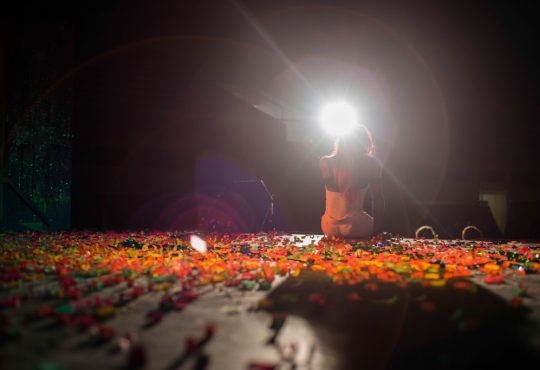
As a queer student at this University, I think I speak for many of us when I say that the last few years have been brutally lacking in a sense of community and belonging for LGBTQ-identifying people on this campus. Whether this unfortunate reality is rooted in a lack of member interest or a lack of reliable organization, I don’t know for sure, but I can say that I often feel as though I’m trapped behind a glass wall, able to see other LGBTQ+ students but unable to reach out to them.
Aden Mortensen ‘19, Qiara Millen ‘21, Kelly Johnson ‘19, Alex King ‘19 and Mickey Leibrecht ‘19 intend to change that. The five of them have sprung into action this year to disband the Queer Alliance (QA), formerly the only LGBTQ+ identity-based club on campus, and reform and rebrand it into something new, accessible, engaging and beautiful — and they’re off to a great start.
In order to start anew, though, these students have had to reconcile with where they began. The old QA was, in a word, unwelcoming. Rumors of harsh gatekeeping and exclusivity reached me while I was in Orientation last year, and as a result I was turned off by the idea of QA before I had spent more than a week on campus. Stories like Kelly Johnson’s sounded in harmony to what I had heard.
“I think the reason it disbanded is you can’t really fix something that’s this broken. … This is gonna be funny for people who didn’t know me my freshman year, but at the time I didn’t feel queer enough to occupy that space in QA. I felt as though there was an expected level of knowledge going in on what was okay to say and what wasn’t, and I didn’t feel that there was room to ask questions or make mistakes. And that was really intimidating for me,” Johnson said.
And while gatekeeping and intimidation were certainly negative experiences shared by multiple students, another major issue was intersectionality, or the lack thereof. QA mirrored campus in that it was mostly white. I didn’t expect campus to be flourishing with LGBTQ+ students of color when I arrived, but I believed that even with such a small amount of POC on campus, surely some had to be LGBTQ+ — and if they didn’t feel comfortable showing up to QA then I wouldn’t either.
“It was kind of on the down low last year, on its way to disbanding,” Mortensen said. “It was very cliquey, very exclusive. Because of that, it wasn’t serving as an outlet for anybody. We didn’t have an influx of new students, and people were getting bored.”
When I came to campus, I wanted a space to engage with my queerness in-depth, and any meeting where I’d be bored didn’t sound compliant with that.
And so, these five queer students have not only experienced these flaws, but have come forth this year to fix them. A big reformation of QA is afoot, with a focus on new structures and a flexibility of spaces to inspire LGBTQ+ students to interact with themselves and one another like never before. In order to combat the lack of intersectionality, for example, the new QA is building several affinity groups within the club, each with a different focus. One group will exist primarily for LGBTQ+ POC, another for trans and non-binary students, another for bisexual students and so on. These groups would exist under the name of the club, but how exactly they would function is still being worked out.
The leaders have toyed with the idea of having one big meeting a month, and in the subsequent weeks the affinity groups meet separately. While drawing lines between each other was the root of the problem in the first place, I think doing so with the intent of increasing intersectionality and acknowledging the diversity of the LGBTQ+ community will keep students involved and invested.
There’s also the big question of what exactly this new club is going to be, that is, what purpose it’s going to serve. Some LGBTQ+ students may want the club to be a space for socialization and meeting one another. Other students may want to see an inherently academic space for talking about queer theory, history and identity politics. Perhaps activism and greater community involvement is what others want to see. The leaders are working to incorporate every concern they can as they labor to reform QA.
Compared to what I experienced when I first got to this university, I firmly believe that Johnson, Mortensen, Millen, King and Leibrecht are the start of something wonderful, long-lasting and valuable that the LGBTQ+ population not only desires, but needs. And even though the reformation is far from finished, LGBTQ+ events and outings are still being planned and will appear throughout the year, so if you’re here and queer, keep an eye out to support the work these students are doing.


